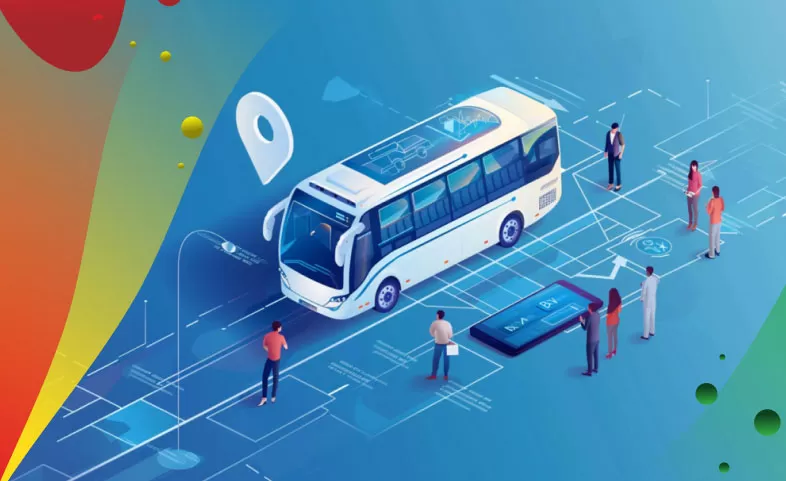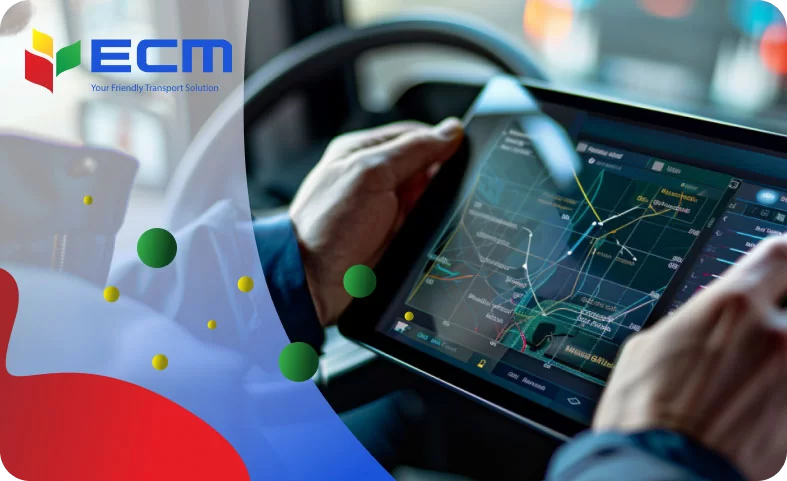Introduction
In today’s dynamic world, bus charter businesses encounter challenges and opportunities, particularly with integrating advanced transportation technology. As pivotal players in transportation and tourism, these enterprises are witnessing significant transformations driven by technological advancements. This blog post delves into the various technology solutions that mid-sized bus charter businesses can adopt to enhance scalability and operational efficiency, exploring how these innovations can streamline existing processes and facilitate future growth.
The Impact of Transportation Technology on Modern Bus Charter Operations
Transportation technology has long been at the forefront of innovation within the transportation industry. Adopting these technologies is now a luxury for bus charter companies but a necessity to maintain competitiveness. Common issues such as route inefficiencies and customer management complexities require sophisticated solutions. Advanced transportation management software provides a gateway to optimise operations, innovate services, and secure a leading position in the market. By leveraging such technologies, bus charter businesses can enhance customer service, increase operational efficiency, and drive substantial business growth.

Enhancing Fleet Operations with Fleet Management Software
Every bus charter company’s fleet is at its core. Effective fleet management is crucial, and robust fleet management software has become indispensable. This software facilitates critical functions such as route optimisation, maintenance tracking, fuel management, and real-time vehicle tracking. For example, a case study on The Coach Company UK reveals a 20% boost in operational efficiency and a notable reduction in fuel expenses after adopting fleet management software. These improvements highlight the concrete benefits of such technologies to bus charter operations. 2 new South African Operators.
Streamlining Bookings with Online Reservation Systems
The shift towards digital has reshaped customer expectations, making efficient online booking and reservation systems essential for bus charter businesses. These systems should be intuitive, user-friendly, and accessible across various devices, particularly smartphones. Integrating these systems with existing customer relationship management (CRM) software can dramatically improve operational workflows and customer data management. Such integration facilitates personalised service offerings, a better understanding of customer preferences, and, ultimately, higher satisfaction rates.
Optimising Customer Relations with CRM Solutions
Customer Relationship Management (CRM) systems are vital in fostering and maintaining client relationships. A sophisticated CRM can be transformative in the bus charter industry, where customer loyalty and repeat business are crucial. These systems manage customer interactions, track service preferences, and gather insightful feedback. Custom CRM solutions for transportation allow for targeted marketing, efficient communication, and enhanced engagement strategies. CRM analytics empowers bus charter companies with data-driven decision-making capabilities, enhancing customer experiences and fostering business growth.

Advancing Payments with Digital Systems
The transportation sector is also evolving as the world moves towards a cashless society. Digital payment and invoicing systems offer enhanced efficiency, security, and greater customer convenience. These systems streamline transactions, reduce manual paperwork, and minimise errors, leading to faster processing times and better cash flow for bus charter businesses. Additionally, the secure nature of these digital transactions builds customer trust, encouraging more frequent and confident interactions with your services.
Improving Safety and Efficiency with GPS and Telematics
Adopting GPS tracking and telematics within transportation technology has revolutionised fleet management. GPS tracking provides essential real-time data for effective route planning and timely customer updates. Telematics extends these benefits by monitoring driver behaviour and vehicle health, enhancing operational efficiency and safety standards. This technology reduces operational costs and elevates the customer experience by ensuring transparency throughout their journey.
Leveraging Social Media and Digital Marketing
In today’s digital era, establishing a solid online presence is imperative. Social media and digital marketing strategies are critical for enhancing brand visibility, engaging customers, and building a dedicated community. Successful bus charter businesses utilise these platforms to highlight their services, share customer testimonials, and actively engage with their audience. A well-executed digital marketing strategy involves a mix of SEO, content marketing, and targeted advertising to expand reach and convert leads into loyal customers.

Regulatory Compliance Assisted by Technology
Navigating the transportation industry’s complex regulatory environment can be daunting. Technology is key to ensuring adherence to local and international regulatory standards. Technological tools assist in managing documentation, monitoring compliance, and upholding safety protocols. This proactive approach helps circumvent legal issues and reinforces customer confidence in the business’s commitment to safety and compliance.
Future Trends in Transportation Technology
The bus charter sector is on the cusp of a technological breakthrough, with innovations like Artificial Intelligence (AI), the Internet of Things (IoT), and blockchain poised to redefine operational paradigms. These emerging technologies promise to enhance automated customer service, operational efficiency, and security. Staying abreast of these advancements is essential for businesses aiming to lead in the future transportation landscape.
Conclusion
Integrating transportation technology into bus charter operations is a strategic initiative that propels long-term growth and efficiency. Technological solutions can revolutionise transport management, enrich customer experiences, and unveil new business opportunities. It’s an investment that yields significant returns in our increasingly digital world.
Frequently Asked Questions (FAQs)
Q1: How does fleet management software improve operational efficiency?
Fleet management software streamlines various aspects of fleet operations, leading to significant cost savings and improved service quality, enhancing overall efficiency.
Q2: Can CRM systems be customised for bus charter businesses?
Yes, CRM systems can be tailored to meet the unique needs of bus charter companies, enhancing customer data management, engagement strategies, and personalised service delivery.
Q3: Are digital payment systems secure for transportation businesses?
Modern digital payment systems are designed with robust security measures to ensure safe and secure transactions, providing businesses and customers peace of mind.
Q4: What future transportation technology should bus charter businesses watch?
Bus charter businesses should monitor AI, IoT, and blockchain technologies, which have the potential to revolutionize customer service, boost operational efficiency, and strengthen security.
Ready to elevate your bus charter business with cutting-edge transportation technology? Contact us for customised technology solutions that align with your strategic goals. Share this insightful blog with your network and join the conversation on leveraging transportation technology for growth in the bus charter industry!
